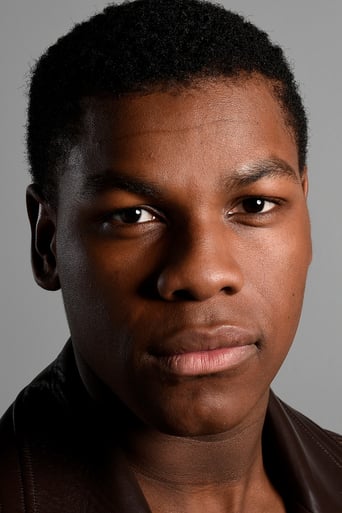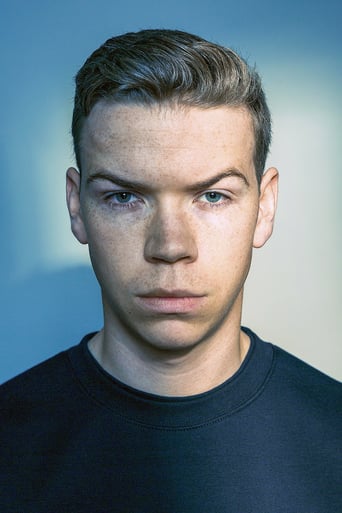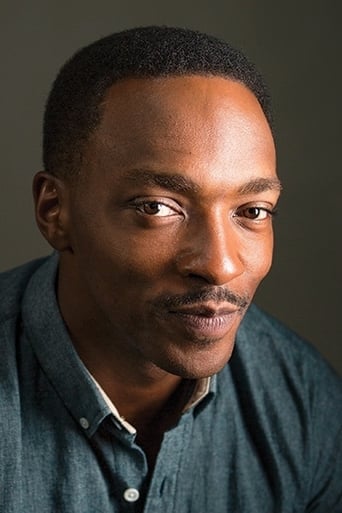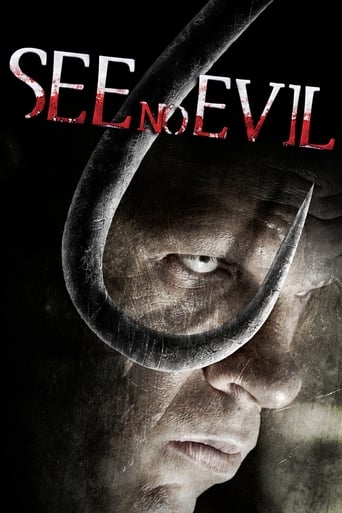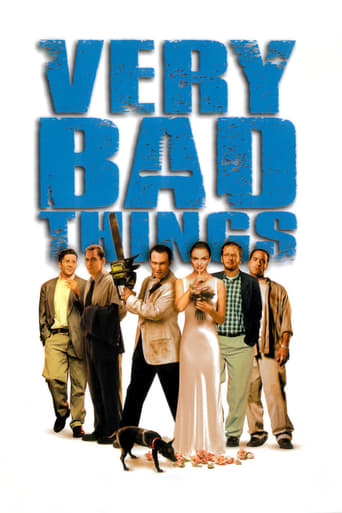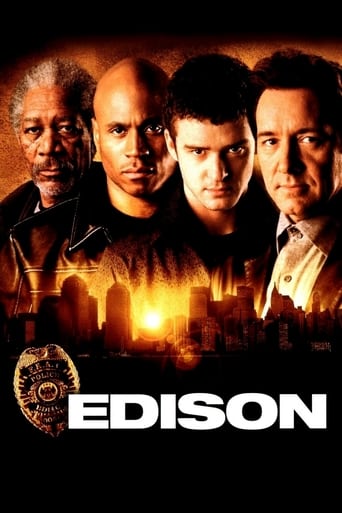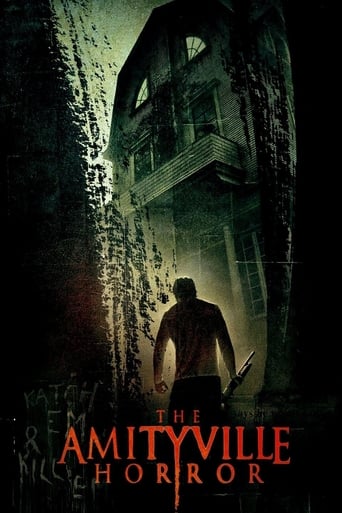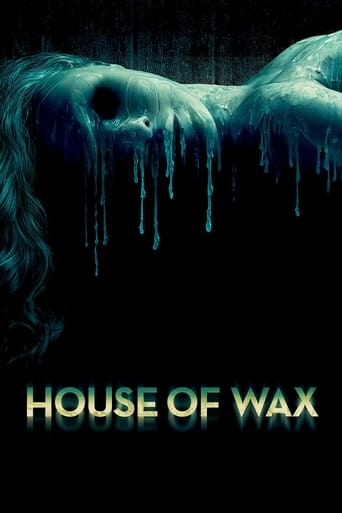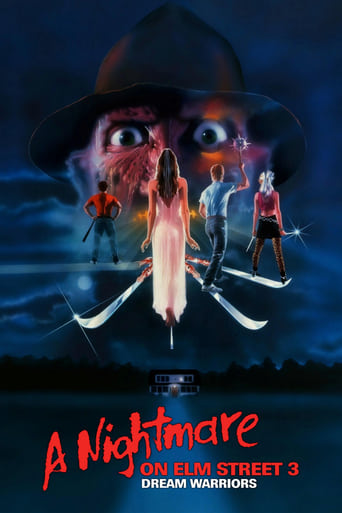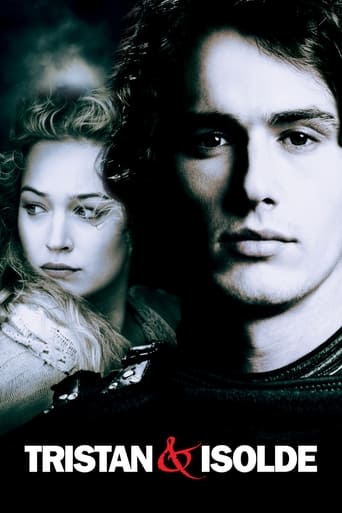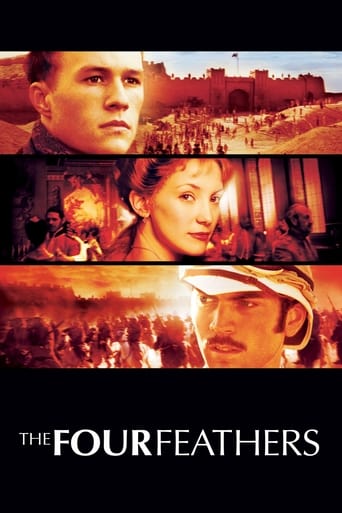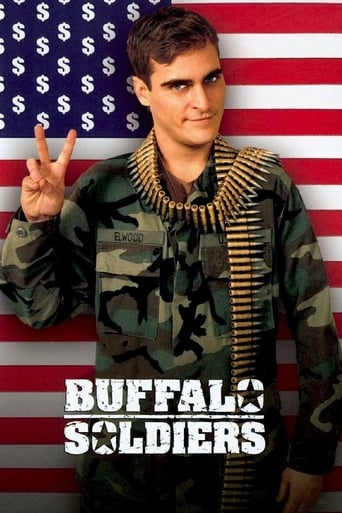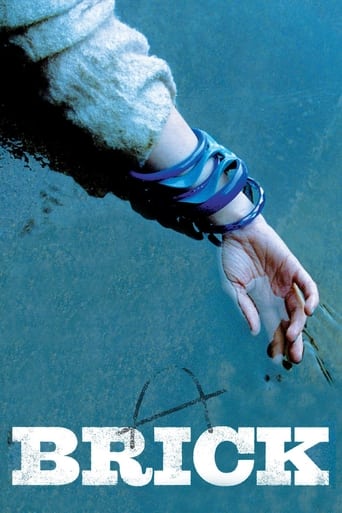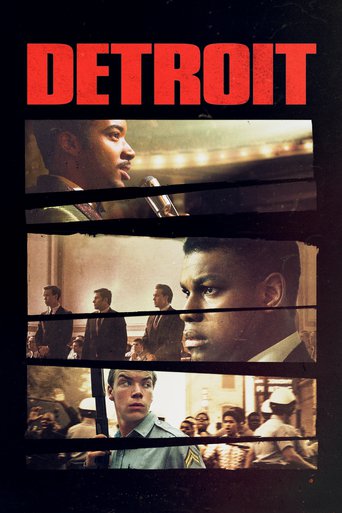
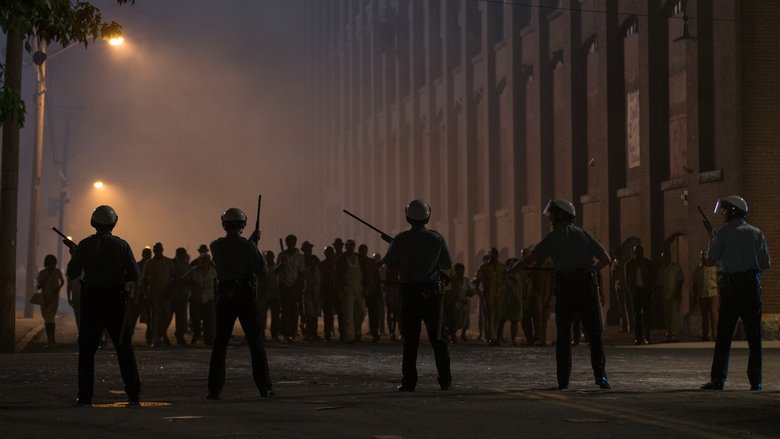
 Watch Now
Watch Now






Detroit (2017)
 Watch Now
Watch Now






A police raid in Detroit in 1967 results in one of the largest citizens' uprisings in the history of the United States.
Watch Trailer
Cast


Similar titles
Reviews
Best movie of this year hands down!
Absolutely the worst movie.
It was OK. I don't see why everyone loves it so much. It wasn't very smart or deep or well-directed.
The best films of this genre always show a path and provide a takeaway for being a better person.
Detroit is a dramatisation of a tragic chapter from America's past, a provocative period piece. More than 40 people died during the so-called "Detroit rebellion", most of them African Americans, many shot by the police or national guardsmen. The writers aimed to convey underlying truth. Any viewer aware that the film takes poetic licence will have some doubt what is true and what isn't. It's an immersive experience which places the viewer at the heart of the unfolding chaos. The cinematography is brilliant. Vintage lenses are used to capture multi-angle digital footage interweaving seamlessly with archive material. However, there isn't an authenticity of dialogue, a charge that the screenwriter accepted. John Boyega gives a careful performance as the security guard who is caught between his race and his uniform. Will Poulter succeeds in characterising a corrupt, racist cop, 'Officer Krauss', a fictional character said to be a combination of a number of different officers from the Detroit Police Department who were present at the Algiers Motel that night. Detroit isn't immune from its critics. It is told in a mode disengaged from the cultural and systemic forces in America that led to that kind of police brutality in 1967. Leaving the viewer feeling angry was the director's intention, and it succeeded.
(I will try not to do just repeat other, better comments)'Detroit' paints a very dim picture of racial bias at the time and does an excellent (if drawn out at times) view of both the racial bias of the time and area of the US, but it also makes us question both law enforcement and the justice system (perhaps both should be in italics?). More to the point, it brings to mind our current climate with its widening intolerance and injustice not just at black (negro) people but anyone that is 'different from us' (white Christians).
The riveting drama taking place in 1967 Detroit in the Algiers motel, this film stars various actors including John Boyega, Anthony Mackie, Will Poulter and even to my surprise, John Krasinski. This film takes place in the midst of racial tension and tension between the people and Detroit P.D. Depicting various scenes of violence, robbery and the city turning into a complete war zone, amongst the mess then focuses on the Algiers motel where all of the characters come together to set up the main story.The whole cast does a wonderful job depicting their individual characters, there is a backstory that can be seen through the dialogue, demeanor and expression of each character. The feeling that these people are real, genuine people and not characters in a movie. This strong sense of realism translates to this conflict amongst the characters which establishes the main drama of the film very well. The way that the film manages to have such great characters with individual story arcs makes them all the more sympathetic and their motives all the more clear and logical. Even in the case of Will Poulter's 'bad cop' you can understand where he is coming from and he shows certain levels of mercy and there is a very clear thought process that can be seen as an audience through the character's actions and dialogue. Detroit, manages to seem so real, almost to the extent of a documentary and that is precisely what makes the film so successful. Because it exuberates this sense of realism there are stakes that audiences can actually feel genuine emotions, dangers and intensity about. Detroit manages to retell a faithful tale of mistakes, fear, ignorance and pain in its 2 hours and 23 minutes runtime without ever feeling too long or dragged along.
During one of the darkest nights in U.S. history in July 1967, a group of young black boys and a couple of white girls lived their worst nightmare at the Algier's motel in Detroit. The day ended up with three dead bodies lying on a bloody floor after being shot by ruthless police officers of Detroit Police Department. The DPD was by that time 90 percent white and most of them with anti-black prejuices. The Detroit riots terminated 47 lives during five obscure days of fires, looting, burglary and violent doubtful police reactions. 'Detroit' begins with the DPD intervening one of those unlicensed afterhours bars on the infamous 12th street, where a big group of black people are gathering to celebrate the safe return of two Vietnam veterans. While the police puts everyone under arrest in the back of several vans, a mob of furious neighbors starts to form, challenging the police and throwing stuff at their cars, which triggers the riot with a violent confrontation and the later burning of several business. However, Director Katheryn Bigelow, in a successful attempt to put the feet of the audience in the shoes of the innocent people of Detroit (and pretty much everywhere you can find black communities), chooses to follow Larry (played by Algee Smith), the lead singer of an uprising music band named 'The Dramatics'. After a concert is cancelled due to dangerous conditions, two of the musicians take shelter in the peaceful and chill Algiers Motel, where a safe atmosphere will keep them out of any trouble. Before that, Bigelow already makes a statement that Detroit was a city at war, and police were not giving any break to anyone who looked suspicious and/or black. That is exactly how the movie works. By hand-holding the camera most of the movie with close-up shots appearing on the frame very often, the viewer can experience what was that night like and get immersed in the challenge of being black during the civil rights movement in America, where you could get shot under 'self defense' claims that usually no one could prove anyway. This is a movie that reminds us that race has always been an issue in the American reality and that it has been closely tied to its history. There is no American history without slavery and race issues. Bigelow wants to make the viewer rethink and wonder how much have we really gone forward in terms of civil rights. How much can police brutality overpass the law and how far can 'self-defense' be believable as a reason to fire a gun to kill.


